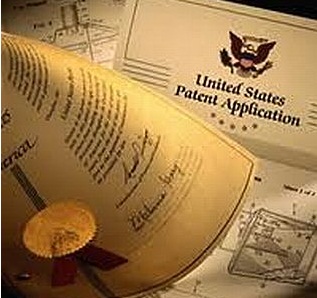Unified Patents is a new San Francisco startup focused on undermining the business plan of nonpracticing entities (NPEs), The Wall Street Journal reported on 7 April. NPEs are often referred to as “patent trolls” by their critics.
NPEs own patents but nothing else and turn profits by suing companies that use their patents to make actual products. Their business is litigation. They tend to go after small companies that have few resources and are more inclined to sign a deal than fight out their position in court.
Resource pool
Unified Patents, reported The Journal, wants to enable companies, particularly smaller companies, to pool their resources. Google and NetApp, a company that makes data-storage solutions, are already on board.
“What we end up doing is making a group of small companies no longer look like an easy target,” Unified chief executive Kevin Jackel told The Journal.
 According to PatentFreedom, an organisation that offers advice and service to the companies “most pursued” by NPEs, litigation attempts by NPEs are skyrocketing. In 2004 there were 588; in 2007 there were 2,058; and in 2011 there were 4,602.
According to PatentFreedom, an organisation that offers advice and service to the companies “most pursued” by NPEs, litigation attempts by NPEs are skyrocketing. In 2004 there were 588; in 2007 there were 2,058; and in 2011 there were 4,602.
According to PatentFreedom, there are more than 680 NPEs, but only 38 are known to hold more than 100 active patents in their portfolios. Since 1985, these NPEs have been involved in litigation with almost 10,000 companies, resulting in nearly 25,000 legal events.
The Journal cites an expert who estimates that more than 50 percent of the defendants in NPE suits make $10 million (£6.5m) or less in revenue. Still, it’s the large companies that get targeted again and again.
According to PatentFreedom, the number-one most-pursued company, as ranked by the number of NPE lawsuits it has fielded, is Apple. In 2012 alone it was the focus of 44 NPE lawsuits, adding to its total of 165.
Following Apple, and making up the top 10, are, respectively, Hewlett-Packard, Samsung, Dell, Sony, AT&T, HTC, LG, Microsoft and Amazon.com. According to The Journal, Unified plans to use a few techniques to deter NPEs.
“One key strategy is defining specific technology fields to defend, making it easier to identify and track a limited number of relevant patents. Unified intends to start with two such ‘micro-pools,'” said the report. “One focuses on technologies for managing patents on mobile devices, and the other focuses on web-powered services known as ‘cloud storage.'”
Another approach would team up small companies to act as an early warning system, alerting other members when they’re approached by an NPE about purchasing a patent or threatened with litigation. Unified plans to charge large members more than small ones, but isn’t sharing what its fees will be.
It will also compete against companies like RPX and Allied Security Trust – which, with a similar goal, work to buy up patents before NPEs can. Unified and its competitors also have the government on their side.
In February, US Representatives Peter DeFazio and Jason Chaffetz introduced the “Saving High-Tech Innovators from Egregious Legal Disputes Act of 2013”, also known as SHIELD. SHIELD proposes, among other things, a “loser pays” rule. If a court finds for the defendant in an NPE – or, as the document refers to them, a Patent Assertion Entity (PAE) – the plaintiff would have to pay all legal fees.
“This fee-shifting provision is thought to be an important and effective deterrent to PAE lawsuits,” Abigail Slater, a member of the New York Bar, wrote in a 25 March post on a regulations blog.
Researchers estimate, she added, that “PAEs lose 92 percent of the time when the litigation proceeds to trial on the merits”.
Do you know all about 4G and the mobile future? Take our quiz.
Originally published on eWeek.




